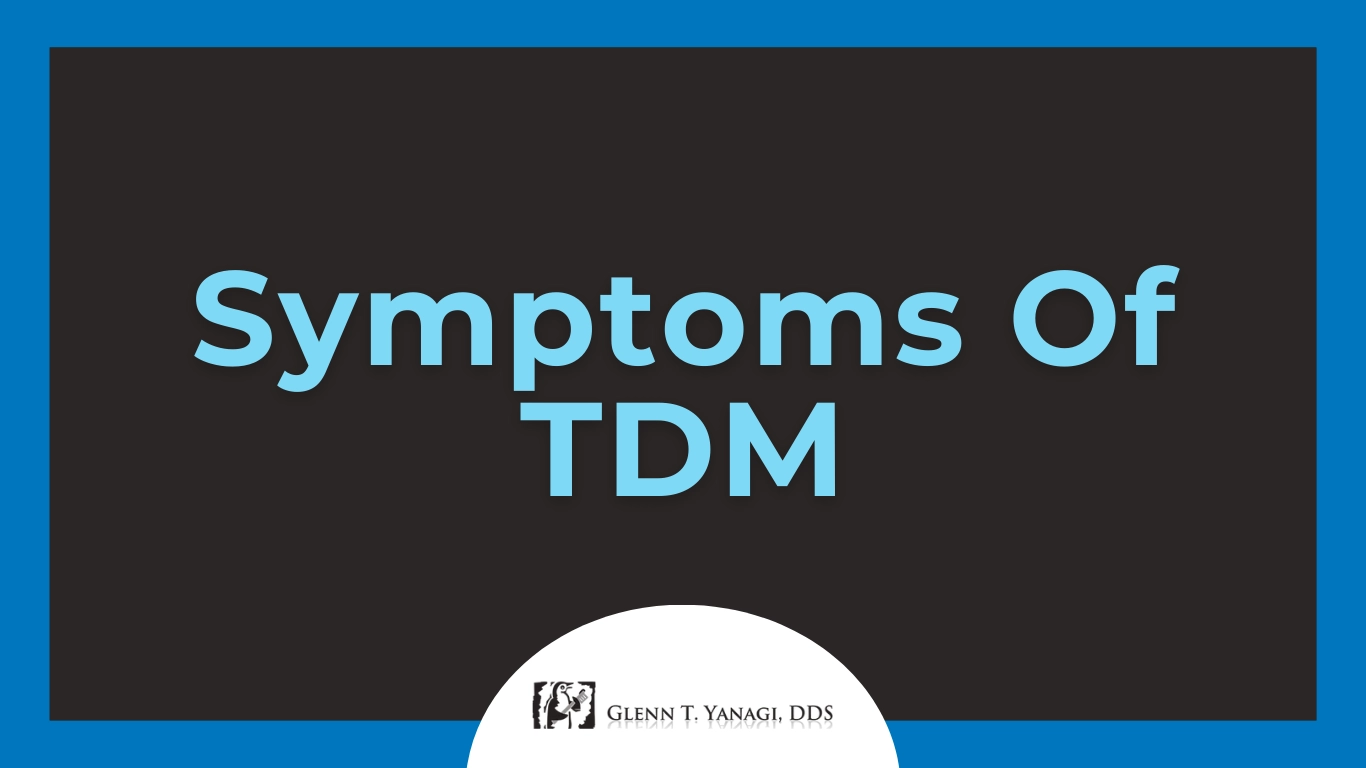Symptoms of TMD in Irvine, CA

Symptoms of TMD and How to Test for It: What You Need to Know
Temporomandibular disorders (TMD) can significantly affect your quality of life, causing pain and discomfort in your jaw, face, and even your neck and shoulders. Many people confuse TMD with TMJ, but understanding the difference between these terms and knowing the symptoms can help you seek the right treatment. At Yanagi Dental, we are dedicated to helping our patients in Irvine, CA, find relief from TMD symptoms. Contact us at (949) 733-3647 to schedule a consultation.
What Is the Difference Between TMJ and TMD?
The temporomandibular joint (TMJ) is the hinge joint that connects your jawbone to your skull. This joint plays a crucial role in allowing you to chew, speak, and move your jaw. On the other hand, temporomandibular disorders (TMD) refer to a group of conditions that cause pain and dysfunction in the TMJ and the surrounding muscles. In simple terms, TMJ is the joint itself, while TMD is the disorder that affects it.
Common Symptoms of TMD
TMD can present a variety of symptoms that range from mild to severe. Some of the most common symptoms include:
- Jaw pain or tenderness
- Difficulty or discomfort while chewing
- Clicking, popping, or grating sounds when moving the jaw
- Limited ability to open or close the mouth
- Facial pain or aching
- Earaches or ringing in the ears (tinnitus)
- Headaches, often resembling migraines
- Neck and shoulder pain
If you are experiencing any of these symptoms, it is essential to consult with a dental professional like Dr. Yanagi at Yanagi Dental. Early diagnosis can prevent the condition from worsening.
How to Test If You Have TMD
There are several methods to determine if you have TMD. A dental professional will typically perform a physical examination of your jaw, feeling for tenderness, listening for sounds when you move your jaw, and observing your jaw’s range of motion. They may also recommend imaging tests such as X-rays, CT scans, or MRIs to get a detailed view of your jawbone and joint.
Additionally, you can perform a simple test at home. Gently open and close your mouth and listen for any clicking or popping sounds. Pay attention to any pain or discomfort when chewing or speaking. While this is not a definitive diagnosis, it can be an indicator that you should visit Yanagi Dental for a professional evaluation.
When to Seek Professional Help for TMD
While occasional jaw pain might not be a cause for concern, persistent or severe symptoms should not be ignored. If your jaw is consistently sore, if you hear sounds when moving it, or if you experience pain in your face, neck, or shoulders, it’s time to see a dentist. Dr. Yanagi and his team can provide an accurate diagnosis and recommend effective treatment options to relieve your symptoms.
Treatment Options for TMD
Treatment for TMD varies depending on the severity of the condition. Some of the most common treatment options include:
- Physical therapy and jaw exercises
- Medications to relieve pain and reduce inflammation
- Custom oral appliances or splints to prevent teeth grinding (bruxism)
- Stress management techniques to reduce jaw tension
- In severe cases, surgical interventions may be recommended
Yanagi Dental offers personalized treatment plans to address your specific needs and provide long-term relief.
Can TMD Go Away on Its Own?
In some cases, mild TMD symptoms may resolve without treatment, especially if they are related to temporary factors such as stress or jaw overuse. However, chronic or worsening symptoms often require professional intervention. Early treatment can help prevent complications and improve your overall quality of life.
Frequently Asked Questions About TMD
- Can TMD cause headaches?
Yes, TMD can often cause headaches that resemble migraines due to the strain on the jaw muscles and surrounding areas. - Is TMD the same as TMJ?
No, TMJ refers to the joint itself, while TMD is the disorder that affects the joint and surrounding muscles. - How long does TMD treatment take?
Treatment duration varies depending on the severity of the condition and the treatment method used. Some patients experience relief within weeks, while others may require longer treatment plans. - Can stress make TMD worse?
Yes, stress can lead to teeth grinding and jaw clenching, which may exacerbate TMD symptoms. - Is surgery necessary for TMD?
Surgery is generally considered a last resort and is only recommended when other treatments have not provided relief. - What should I avoid if I have TMD?
Avoid hard or chewy foods, excessive jaw movements, and habits like gum chewing that can strain your jaw.
If you are struggling with symptoms of TMD, do not hesitate to contact Yanagi Dental at (949) 733-3647 to schedule a consultation. Our experienced team is here to help you find relief and restore comfort to your daily life.

